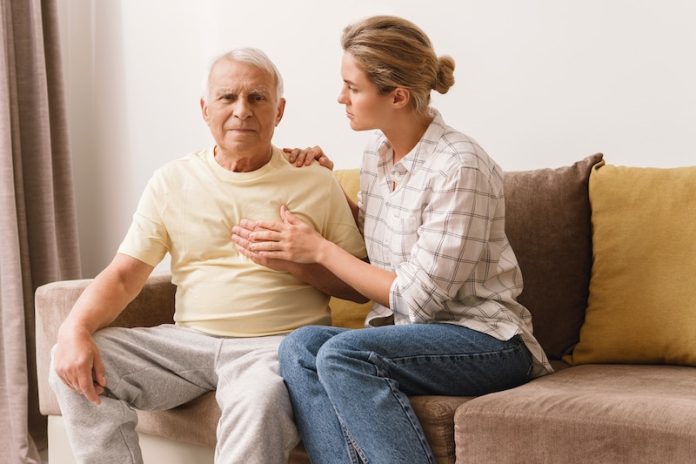
The Importance of Family and Friends in Recovery
When someone survives a heart problem that happens in a hospital, it’s a big relief. But the road to recovery is long and often needs the help of close family and friends.
A recent study focused on the caregivers—people who look after these heart patients once they’re back home. It turns out that caregiving is a job with both rewards and challenges.
Most of the time, we hear about heart issues happening suddenly at home or on the street. But sometimes people are already in the hospital for another health problem—like diabetes—when they have a heart emergency.
So, they end up needing help for more than one issue when they get home.
The Lives of Caregivers: Rewards and Struggles
The study included 19 veterans who survived a heart problem in the hospital. They named their primary caregivers—mainly family and friends who looked after them.
These caregivers often take on a range of duties such as driving, shopping, cooking, giving medications, and offering emotional support.
But being a caregiver is not easy. Most of them talked about how it’s hard on their own lives, including their well-being and their relationships.
For instance, some stopped going out with friends or enjoying hobbies because they were scared another heart issue could happen while they were away.
This kind of ongoing stress led some caregivers to face depression, anxiety, and even post-traumatic stress disorder years later.
Yet, it’s not all negative. Some caregivers felt a strong sense of purpose and pride in helping their loved ones. They felt closer to them and believed they were doing something truly meaningful.
Cultural Views and Coping Strategies
People from different cultures often have varying views on caregiving. In some Asian cultures, for example, caregiving is seen more as a duty that brings positive feelings.
It’s like setting a good example for the next generation. Regardless of background, caregivers find their own ways to manage stress, such as gardening, praying, or seeking professional help like counseling.
The Need for More Support
While hospitals usually offer some help right after the patient is discharged, long-term support for caregivers is lacking. Some caregivers wish that this kind of help would continue, giving them a break and a chance to recharge.
Caregivers are often overlooked but they’re a crucial part of the patient’s journey to recovery. Recognizing their role and offering them the support they need is something our health care system can do better.
So, caregiving after a heart issue in the hospital is like a double-edged sword. On one side, it gives a sense of purpose and closeness to loved ones.
On the other, it can disrupt lives and lead to emotional struggles. Balancing both aspects is crucial, and more support is needed to help these unsung heroes in their crucial roles.
If you care about heart health, please read studies about the best time to take vitamins to prevent heart disease, and scientists find how COVID-19 damages the heart.
For more information about heart health, please see recent studies about how to remove plaques that cause heart attacks, and results showing a new way to prevent heart attacks, strokes.
The research findings can be found in the Journal of the American Heart Association.
Follow us on Twitter for more articles about this topic.
Copyright © 2023 Knowridge Science Report. All rights reserved.



